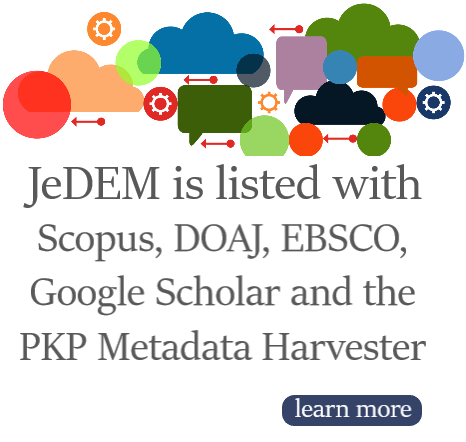Web 2.0 and Participatory Governance
DOI:
https://doi.org/10.29379/jedem.v1i1.7Keywords:
Lantau Island, Hong Kong, geographic information system, GIS, deliberation, social choice theory.Abstract
By integrating a Geographic Information System (GIS) into a web portal, we allow a multi-way dialog between Hong Kong's citizens and planning officials. Alternative development plans for Lantau (Hong Kong's largest island) can be analyzed through interactive maps, which allow citizens to compare and comment on specific geo-referenced features. Lantau Island's extensive nature reserves, which offer protected nesting grounds for numerous bird species and other ecological and recreational services, are being weighed against extensive economic development. This experiment in open governance within China will also serve as a laboratory to study qualitative differences in citizen learning, between online dialog and face-to-face group deliberation. Our experiments will explore resolutions to a classical economic paradox from social choice theory, and point to potential improvements in contemporary efforts to bring open and responsive government through information technology.Downloads
Metrics
Downloads
Published
How to Cite
Issue
Section
License

JeDEM is a peer-reviewed, open-access journal (ISSN: 2075-9517). All journal content, except where otherwise noted, is licensed under the CC BY-NC 4.0 DEED Attribution-NonCommercial 4.0 International













